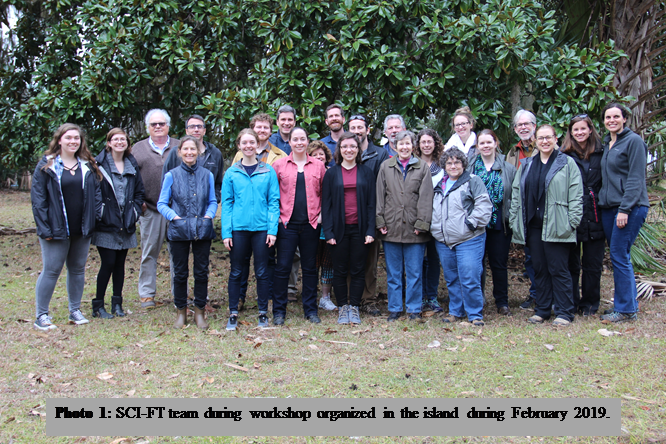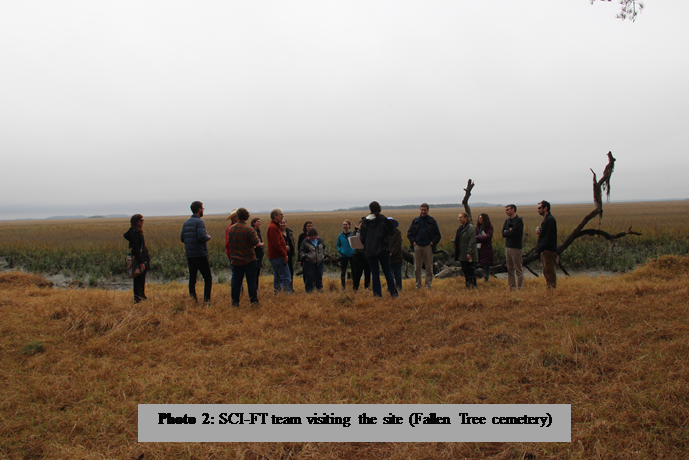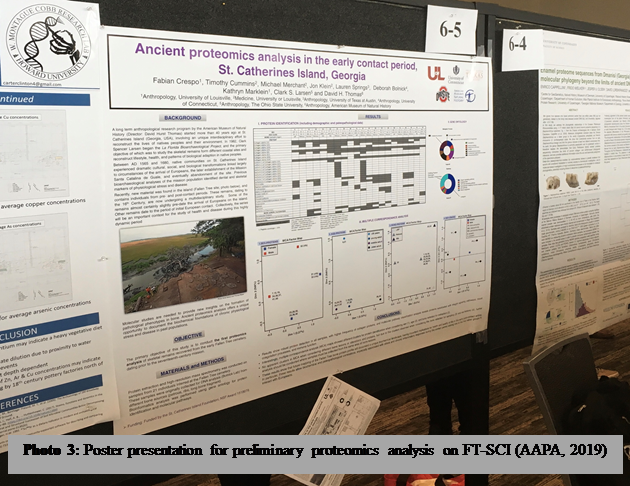St. Catherines Island - Fallen Tree Project
THIS PROJECT IS HALTED DUE TO NEW CONSULTATIONS WITH NATIVE AMERICAN NATIONS. I WILL UPDATE ALL NEWS AS SOON AS POSSIBLE.
During 2016, I had the honor and great opportunity to start collaborating with a prestigious team of anthropologists, archaeologists, bioarchaeologists, and biologists from different academic and research institutions (American Museum of Natural History, Ohio State University, University of Georgia, University of Alabama, Arizona State University, University of North Carolina, and Johns Hopkins University). David Hurst Thomas (AMNH), Clark Spencer Larsen (OSU), and Anna Semon (AMNH) direct this multidisciplinary team. During the last 3 decades, Dr. Thomas and Dr. Larsen are studying the social and biological transformative experiences that were part of the contact between Native American and Spanish populations on the east coast of US; where St. Catherines Island-SCI (Georgia) offers, perhaps, one the best contextualized settings in North America where to study the transformations produced by the collision between Old and New World peoples. The team is now conducting a multidisciplinary project on a recently found pre-Spanish mission cemetery (early 16th) named Fallen Tree (FT).

My work and research goals in this ambitious collaborative project are primarily focused on the study of the association and phenotypic expression of different osteological markers for inflammation that can be used to reconstruct skeletal inflammatory phenotypes ultimately leading to a “skeletal inflammatory index”(SINDEX). Such reconstruction has three different components: paleopathology, osteoimmunology, and ancient proteomics.

During February 2019, most members (Photo 1) of the FT-SCI team met at St. Catherines Island research complex and discussed the progress of each research component and plan future agendas/objectives. We also had the great opportunity to visit the site (FT cemetery; photo 2). Last April, during the AAPA meeting (Cleveland, OH 2019) we presented the preliminary data and analysis on ancient proteomics from 21 individuals from FT (photo 3).

For more information about St. Catherines Island visit the following sites:
https://www.amnh.org/research/anthropology/curatorial-research/north-american-archaeology/projects/st.-catherines-island-ga
http://www.stcatherinesisland.org/research-publications/scientific-publications/
